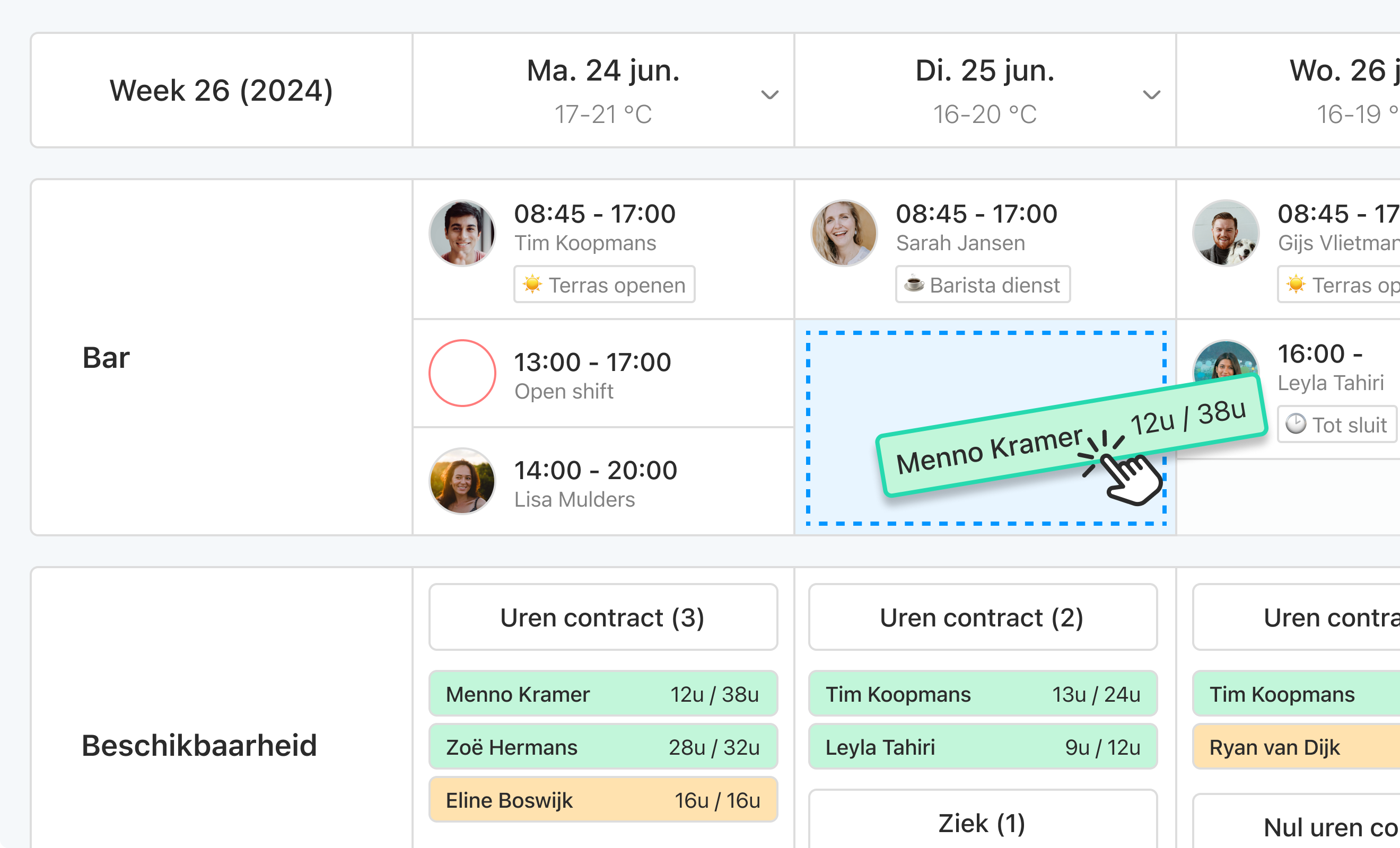

Jurriaan Schrofer
11 March, 2020
It is less than two weeks that the first Dutch person was infected with the corona virus, but the virus is spreading at a worryingly fast pace. 503 Dutch people now carry the corona virus and the number of infections is increasing daily.
In addition to the health risk ’ s the virus also has economic consequences. Two of the sectors that will be hit first are the hospitality industry and tourism. In Brabant, all major events have been cancelled, in Amsterdam the occupancy rate of hotels fell by 30% and the Koninklijke Horecavereniging Nederland is already sounding the alarm.
The coronavirus is expected to spread further in the coming weeks and there will be more consequences for the catering industry. In this article we explain what the coronavirus means for your catering business and how you can prevent the problems.
Can the government force me to close my business?
Do I have to decide to close my business?
Do I have to pay rent if my business is closed?
Is the coronavirus transmitted through food and drink?
Can I request a reduction in working hours?
Can I insure myself against the consequences of the coronavirus?
Can I let my employees take leave and vacation days?
If there is a quarantine, will I have to continue paying my employees?
How can I best inform my employees?
I think é é One of my guests is infected with the coronavirus, what can I do?
Which ë precautions should I take?
What should I do if all my reservations are cancelled?
How can I stay informed?
Can the government force me to close my business?
In the event of disasters, exceptional situations and epidemics ë n the government may take emergency measures to protect the country. If the coronavirus continues to spread, which unfortunately is likely, you may be forced to temporarily close your business. That already happened in Brabant earlier this week, when all major events and concerts were canceled by order of the government. Keep in mind that this can happen suddenly and the costs can be high. You simply have to continue to pay the rent, staff and fixed costs, while you can no longer generate any turnover. Therefore, think about applying for a reduction in working hours in good time (read more below).
Do I have to decide myself to close my business?
It is wise to protect yourself from the coronavirus and to protect your guests and customers. For the time being, however, the RVIM advises against closing your business or canceling an event – unless the government forces you to. The reason is that the virus has not yet spread throughout the country and that the chance of infection remains limited for the time being. If the situation escalates, there may be a point where it is good to temporarily close your business, but the government and RVIM will indicate this themselves in the news and on this information page . Before that, you would do well to maintain the hygiene ë ne and continue to inform your staff.
Do I have to pay rent if my business is closed?
Unfortunately, you have to keep paying the rent, even if the government forces you to close your business. A common rental contract does not include any conditions about an emergency that might exempt you from the rent. In addition, the missed costs are seen as part of your entrepreneurial risk.
Is the coronavirus transmitted through food and drink?
According to scientists, the coronavirus is mainly transmitted through the air and through physical contact. The transfer does not (or is é ) take place via consumer goods é That's why you don't have to worry about your purchases and suppliers. It may be wise to use other ë necessary measures and to inform your staff and guests (see below). Also, according to the RVIM the chance that the coronavirus will be transmitted by cash is very small.
How can I request a working time reduction?
You can request a reduction in working hours in extraordinary circumstances, for example in the event of a disaster, state of emergency or during an epidemic (included in article 8 of the Extraordinary Decree on Industrial Relations). Because the coronavirus falls under the exception, you can save a lot of money as an employer. With the working time reduction you can have your employees work less, ó ó k if they have a permanent contract. The hours that they do not work are then paid from the WW, so that you as an employer do not have to pay for the wage costs. However, there must be a direct link between the consequences of the coronavirus and the reduction in work of your staff. For more information about the short-time working and how you can apply for it, it is best to visit the website of the Government .
Can I insure myself against the consequences of the coronavirus?
The coronavirus is already having a major economic impact. The virus is expected to spread and the adverse economic consequences will increase further. As a result, some entrepreneurs will miss out on a lot of income because they have to close or because the number of guests will decrease sharply. In the meantime, you are stuck with the usual costs, such as your rent, wages and fixed costs. Although it would be nice to insure yourself against this, unfortunately this is not possible. That is why it is wise to calculate how long you can survive without income – and to preventively reduce your costs. It is not easy to temporarily stop your rent, unless your landlord wants to spare you the costs (read more below). You can also ask your staff to take leave, but you may not force it. That is why it is best to reduce costs preventively (for example by not hiring permanent staff at the moment) and request a reduction in working hours in time.
Can I let my employees take leave and vacation days?
You can ask your employees if they want to take leave for the days that they are unable to work, but according to the law, this leave can only be taken in consultation. You cannot force your employees to do this. If you need less staff due to the coronavirus, for example when you have fewer reservations or because you are obliged to cancel your events, it is better to request a reduction in working hours (see above).
If there is a quarantine, will I have to continue paying my employees?
Employers are obliged to continue to pay their employees during a quarantine, even if they are in no way responsible for it. You will still have to continue to pay your employers, unless you request a reduction in working hours (see above). If an employee is quarantined abroad, for example in the closed northern Italy ë , it is more difficult to apply for a reduction in working hours. The negative link between the coronavirus and your company becomes a lot less direct, because it only concerns a single employee. You can better compare this with a situation in which your employee is stuck abroad because his flight has been cancelled, for example because of bad weather. Then you as an employer are also obliged to pay his wages.
How can I best inform my employees?
The Koninklijke Horecavereniging advises catering owners to inform their staff about the current status of the corona virus and about the necessary hygiene ë take measures. The best way to do this is to keep your staff regularly informed about the virus and its impact on their work. It is not only important that your staff knows how to maintain hygiene ë have to work professionally, but also that they can answer the questions of your guests and feel well ï feel informed about their working condition. In this way you keep your staff well informed and you prevent panic or a sudden loss of workers – because your employees no longer dare to work.
I think é é One of my guests is infected with the coronavirus, what can I do?
You can of course ask your guests if they are infected, or request hygiene ë nice to deal with your staff and the other guests. However, you are not authorized to have your guests tested for the coronavirus, which is something that only the GGD can enforce. If you are concerned about your guests and a possible spread within the company, it is therefore best to ask everyone to wash their hands, sneeze into their elbows and make as little physical contact with others as possible.
Which ë precautions should I take?
If your restaurant, café é or lunchroom doesn't want to close, or can't close because the costs are too high, you can consider adding more hygiene ë to take measures. Then you reduce the risk of contamination of your guests and staff. Because the coronavirus is spread by humans, it is best to:
Limit physical contact as much as possible
Regularly disinfect your hands by wash them with soap
Use tissues and do not cough or sneeze in someone else's direction
Place disinfectant soap near the toilets
What should I do if all my reservations are cancelled?
There is no national support for the lost sales. If your guests cancel their reservation, the options are therefore limited to your general terms and conditions. Many hotels and apartments have clearly laid down under which circumstances you can cancel a reservation – and when guests still have to pay. If you do not have terms and conditions, you can do nothing but cancel the reservation and return the money.
How can I stay informed?
You can ask us questions by emailing jurriaan@eitje.app . You can also stay up to date with the information from the RIVM , which is about the emergency measures and the way in which you can best protect yourself against the virus.
About us
Eitje is a planning tool for the hospitality industry, which saves you time and makes it easier for you to perform your work. You use our all-in-one planning tool to create rosters, register hours, train employees online and keep your staff well informed about the developments in your business. But that's only the beginning, because all our functions help you to manage your catering business better and easier. Are you curious about egg? Then I will be happy to give you an online demo or a free trial month. Hit us up!
Eitje
Alles voor je team in één oplossing
De beste en makkelijkste manier om teamleden aan te sturen. Roosters, communicatie, urenregistratie en meer.

